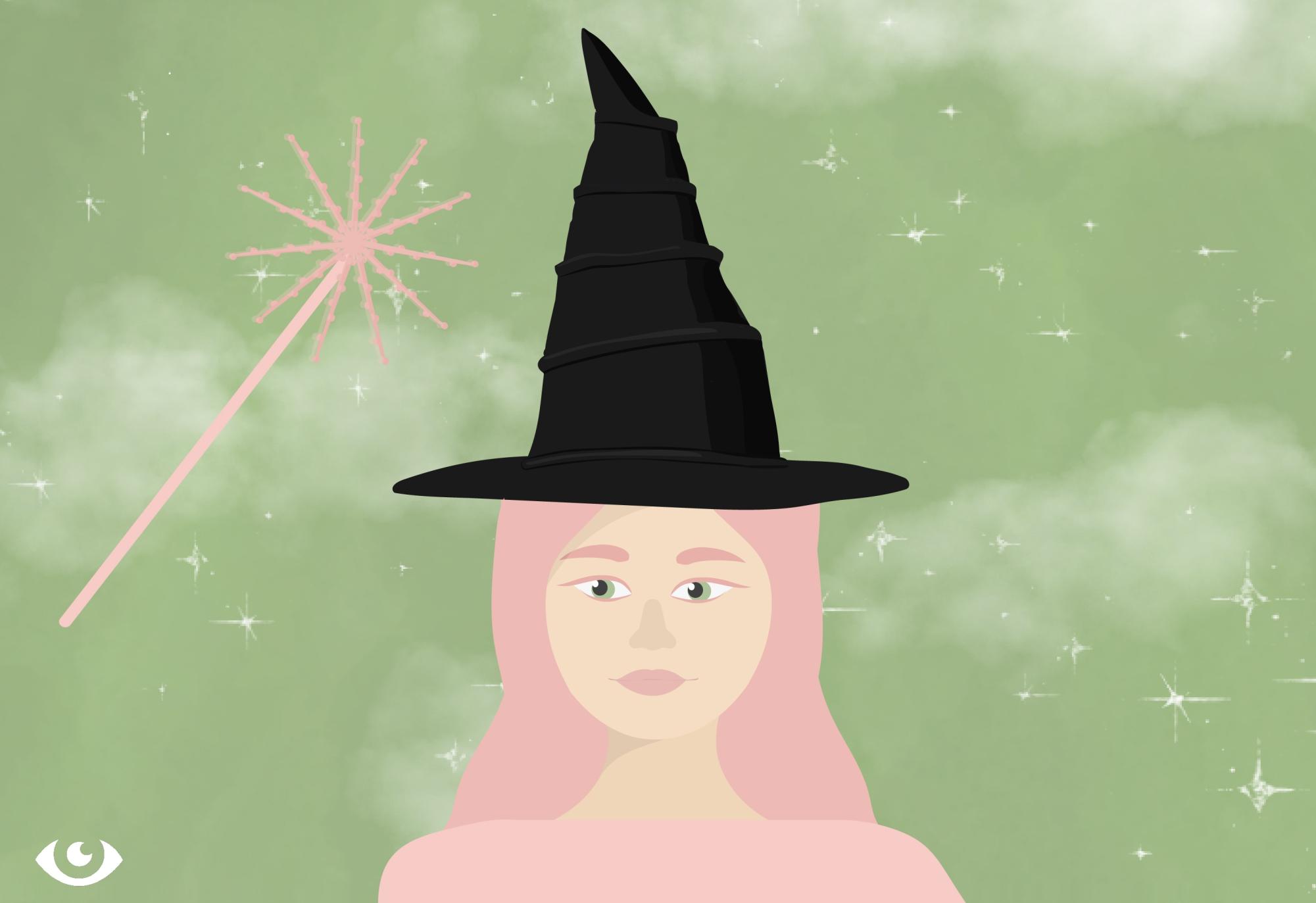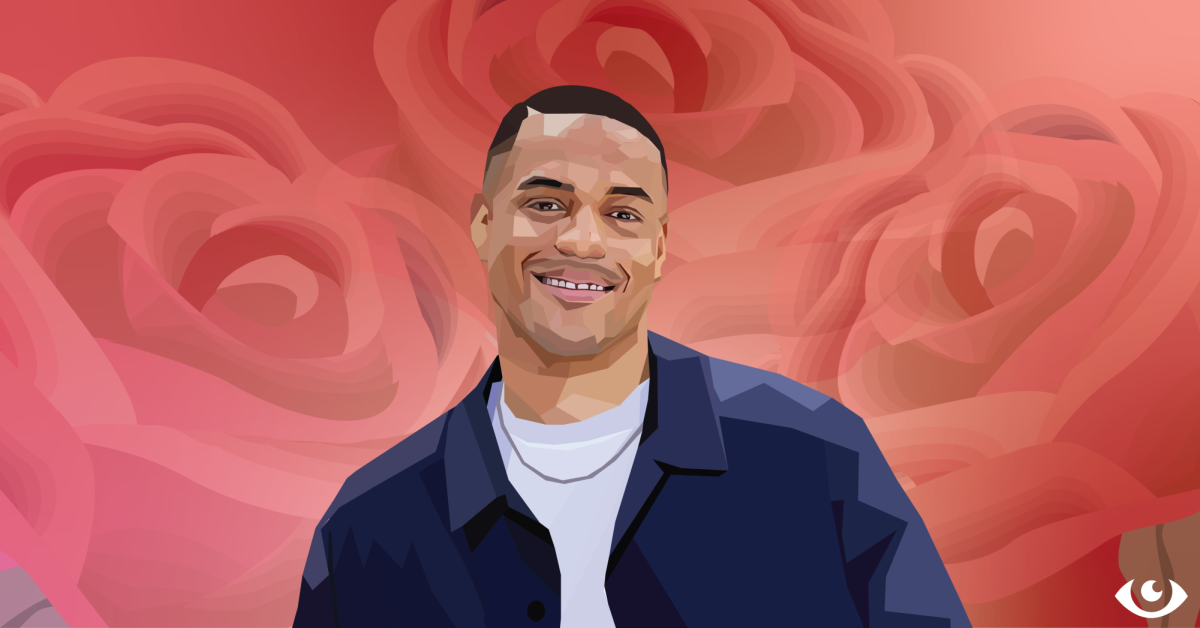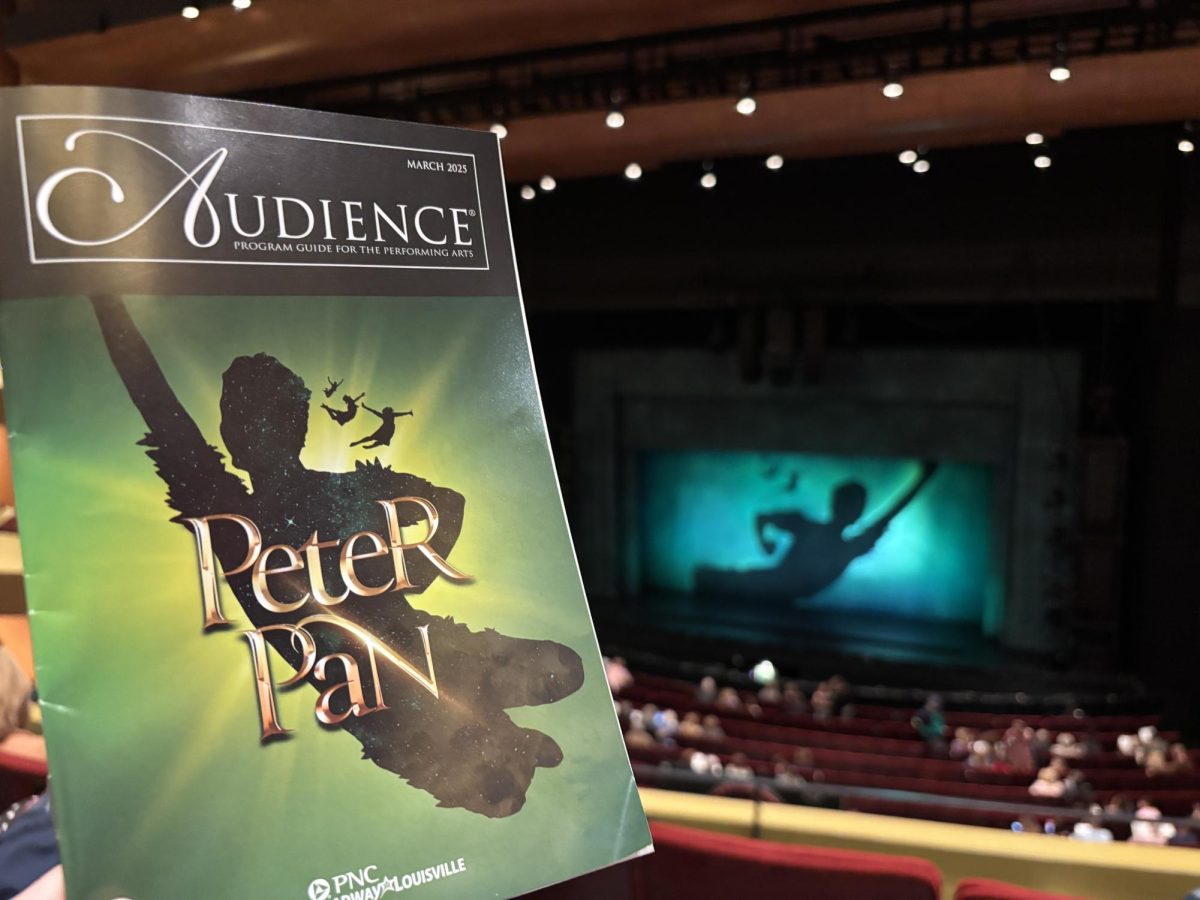REVIEW: RedEye critics review the political undertones and cultural significance of “Wicked”

After a nearly 10 year wait, the movie adaptation of the “Wicked” musical and book has finally come out. Although the wait seemed unreasonable, there were plenty of setbacks that postponed the movie’s release.
The movie was set in motion in 2010 when Universal Studios began searching for a director. Although Jon M. Chu has done a phenomenal job with the movie adaptation, the original director was meant to be Stephen Daldry, who has directed movies like “The Reader” and helped direct the TV show “The Crown.” The movie was intended to be released in 2019 but was postponed, when Universal believed that “Cats” would be a bigger and more secure success, (it wasn’t, it got a 2.8/10 on IMDb). Universal wanted to begin production on “Wicked” after the release of “Cats.” According to Deadline, Daldry didn’t agree with the short amount he was being given, and therefore resigned as the director.
Chu had a slightly different vision for the movie than Daldry. Chu decided he would split the movie into two parts. The split aligns with the break between acts one and two of the musical. However, this split was a bit controversial. Because Part 1 is nearly as long as the entirety of the musical, many people seem to think this split was just a way for Universal to make more money.
However, after watching the movie and learning about the time and effort that was put into the production for Part 1, the split seems reasonable. I feel like everything that was included in the movie just made sense. If the movie were to be only one part, many scenes would have had to be cut and I can’t think of any moments that should’ve been left out. Everything comes together in the end and is the perfect set up for “Wicked part 2.”
Moving on now to the soundtrack, it’s nothing new. They’re the same songs from the musical, but Cynthia Erivo and Ariana Grande have managed to make it their own. Erivo and Grande decided they wanted to sing the whole soundtrack live. This meant that instead of going back to a studio to record the songs, the sets were basically their studio. This made the movie all the more unique because of the difficulties of the songs. Grande sang opera during “No One Mourns The Wicked” and Erivo sang while doing her flying stunts during “Defying Gravity.”
Knowing that they sang live truly makes me feel they were the perfect castings for their roles. Although they are both widely known actresses, they managed to set their personal lives aside and focus solely on their characters, and portraying them. When it was first announced that two widely recognized women were being cast for the movie, it caused people to criticize the actresses, especially Grande. It wasn’t always intended to be that way. Chu originally wanted lesser known actresses, given that this movie could’ve been someone’s big break. However, during the audition process Chu realized that the movie needed people who had experience in both acting and singing and who could handle such an immense project.
Although this movie has faced tons of criticism, setbacks, and controversies, it has been a big hit, grossing $455.5 million worldwide. The excellent acting, singing, and directing of this movie makes it a must watch for everyone.
The movie’s release has provoked a resurgence in the popularity of the musical throughout culture. Social media feeds are filled with movie clips and songs, and companies like Target are collaborating with the lead actors to promote the film while selling products. As a result, even if you have no interest in seeing the film, the infamous “Defying Gravity” vocal riff has likely been stuck in your head at some point.
The film’s release has been long anticipated. Production began in December of 2022 but was interrupted by the extensive SAG AFTRA strike in 2023.
For many actors, being cast as a lead in the film would be a childhood dream come true. For the role of Glinda, Amanda Seyfried, Rennee Rapp, and Taylor Lauderman were all in the running. Dove Cameron also auditioned but has not disclosed for what role. Lady Gaga was the top choice for Elphbaba in 2016 before the project directed by Stephen Gouldry fell through.
Following the casting of Ariana Grande as Glinda and Cynthia Erivo as Elphaba, Erivo has been criticized for her post on X regarding the casting announcement for Glinda.
“Absolutely no surprise whatsoever. Thank goodness, because it was not the two ladies that I was auditioning with,” she said.
This put a bad taste in the mouths of some who accused her of being insensitive. Erivo has also been accused of overreacting to a fan’s editing of the movie poster to be more accurate to the original. On Oct. 16, she posted on her Instagram story,
“This is the wildest, most offensive thing I’ve seen… none of this is funny, none of it is cute, it degrades me, it degrades us…”
The original movie poster featured Erivo looking directly into the camera whereas the edited one has her eyes overshadowed by the brim of her hat.
Despite the change being minor, the cultural impact has been substantial. Fans have different opinions on the matter. Some believe that the reaction was unwarranted while others think that the response was appropriate given the undertones of hiding the face of a queer woman of color. It’s important to note that as a black woman, Cynthia Erivo faces a double standard. When she says something that comes off as insensitive or overreacting, she is put under more scrutiny than a non-minority figure. I believe her comments are a result of pent-up emotions from the stress of an exhausting press tour and constantly being under a microscope.
Though a sensitive topic, the well-being of both Ariana Grande and Cynthia Erivo has been a public concern. Some fans believe that they both look malnourished, comparing their bodies to a year or two prior where they look healthier and stronger. While the bodies of others shouldn’t be a conversation topic, both celebrities have obviously lost a significant amount of weight. When this is depicted in the culture as being normal, it can have a negative effect on viewers, normalizing extreme thinness. A younger audience is especially vulnerable to being persuaded that drastic weight loss is healthy.
The large cultural impact of the film’s release has also been emulated through capitalism. Corporations have taken advantage of fan excitement. With such a popular movie comes an opportunity to cater to the cultural desire for material objects. Starbucks released the Elphaba cold brew and Glinda’s pink potion refresher. Erivo was featured in advertisements for Android and Target, promoting their products. One of the biggest culprits of this hyper-consumerism is the “targetification” of everything in pop culture. Leading up to and following the film’s release, Target has featured “Wicked” inspired clothing, Barbies, Lego sets, makeup kits, and the “Wicked” soundtrack on Vinyl. All of these will become outdated as quickly as they have arrived, catering to the whims of fans who discard objects once they are no longer popular.
This is extremely problematic because contrary to popular belief, donating objects does not always extend their lifespan. In fact, many donated items still end up in landfills. This happened with “Barbie Summer” in 2023. In response to its popularity and seeking a profit, companies produced excessive Barbie merchandise, only to be lightly used and donated. As a result, second hand stores like GoodWill were flooded with cheaply made merchandise, an extra stop before the inevitable landfill. As consumers, we can choose to enjoy the cultural trend that is “Wicked” without partaking in the toxic and wasteful cycle that is overconsumption.
The release of “Wicked Part 1” has incited plenty of discourse about more than just the movie itself. It has sparked surface-level conversations about celebrity drama, but also important critiques on how Hollywood impacts the mental health of celebrities and the problematic consumerism that the movie has encouraged.
In 1964, a high school teacher named Henry Littlefield published an essay framing L. Frank Baum’s “The Wonderful Wizard of Oz” as a critique of capitalistic populism. He used the falsely great wizard to warn readers of the dangers of conformity, and his analyses ranged from long-winded extended metaphors about the gold-paved road towards disappointment to the title city representing the measurement unit of silver: ounces (“oz”).
This is but one famous example; countless scholars and critics have found political allegories in both the film and printed versions of “Oz,” and it’s known in some circles as more philosophy than fiction. So, when Universal Studios announced the screen adaptation of “Wicked,” following a long run on Broadway, as a sequel to Baum’s story, expectations were, for lack of a better phrase, defying gravity. It had to match the spectacle and tenderness of the original film while executing its politically loaded premise without coming off as preachy.
After credits rolled on the two and a half hour first part of the announced duology, with 120 lines of notes in my lap, I knew that “Wicked” had perfectly filled whatever ruby shoes were left for it. I was something between amazed and overwhelmed. I was dazzled.
The movie begins with a monologue from Glinda, a representative of the Emerald City, during the ceremony for the death of Elphaba, the Wicked Witch of the West. It quickly flashes back to the two meeting at Shiz University, where Elphaba is ostracized for her green skin and a shallow but popular Glinda is secretly jealous of Elphaba’s talent for sorcery.
The two are put in a dormitory together, to both of their dismay (Glinda: “I was promised a private suite”), and as the story goes on, the facade of the seemingly perfect school—and society—crumble, piece by ignorant piece. Elphaba believes that the wizard, mediocrely performed by Jeff Goldblum, will emerge Godlike and solve the story’s injustices if he’s alerted to them.
With Glinda and Elphaba’s incomparable performances by Ariana Grande and Cynthia Erivo, respectively, heartfelt and astonishing live vocals, and a prince (played by Jonathan Bailey) whose acting reaches supernova levels of chemistry, the spectacle more than delivers. There isn’t a scene with an out-of-place or dull visual, and the costumes are rewind-the-movie distracting in their complexity. There’s a beautiful order to all of it, though, and there’s never a detail that feels excessive. Despite every possible sense of spectacularity, it’s reserved.
To leave the film at this, as a work of well-composed but ultimately shallow aestheticism, would have desserviced the legacy of the original “Oz” story, sure, but it’d still be entertaining and well worth watching. But “Wicked” transcends that wildly, and in doing so, gives its audience a pristine and brutal mirror of their current predicament.
The commentaries were, to give ground to critics, sometimes less than covert. A character thinly hides their distaste towards Elphaba by saying, “I don’t see color.” A professor says that we’re doomed to repeat history if we don’t learn it. The prince, Fiyero, tells students that “life’s more painless for the brainless,” and they all buy it instantly. The screenwriters didn’t exactly have a Faulknerian knack for subtlety, yet the lessons still compel.
The story has an alternately obvious and fascinating relationship with discrimination. Nearly every time a character meets Elphaba, they jump back spring-loadedly and exclaim some version of a horrified “oh! You’re green!” It’s only a goat professor—not “greatest of all time,” but a literal talking goat named Dr. Dillamond—with experience being viewed as an “other” who imagines Elphaba as a whole being from their first encounter.
This isn’t Dillamond’s main purpose in the story, though. As he explains in the disappointingly short number “Something Bad is Happening in Oz,” animals kingdomwide are losing their ability to speak. The university is proof of this: Dillamond among the only remaining nonhuman professors after years of them becoming mute, and when Elphaba destroys the school’s human-filled medallion in a magic rage, it reveals an older one depicting animals.
Elphaba—the only student to have experienced lifelong ostracization—is alone in her resistance to this sterilization of diversity. She’s also alone in seeing through the (at first glance) insouciant prince’s charm and disdain for academics—when students swoon at his aforementioned carpe diem song, she rolls her eyes and leaves. (In an admittedly tropey moment, Fiyero later longs for the attention of the one person he can’t get it from.)
Oz has been so twisted by the social corruptions that the film explores that it’s no surprise that they begin to manifest themselves in a twisting of language. People are rewarded with “congratulotions,” and in response, they feel “gratitutions.” Elphaba is summoned “most cerimounioushly” to the wizard, and, if she were more enlightened, Glinda might describe this perversion of the spoken word as “scandalocious” or “hideodious.” It all makes one feel quite “pessimistical.”
It is here, beyond the spectacle or the magic, that we see Elphaba’s most unflagging—to say nothing of honorable—resistance. Aside from her one-time use of the grammatically sound “degreenify,” she never once lets her language become flimsy balderdash. She speaks plainly and honestly, and in doing so, seals her fate as a public enemy. When the state announces her arrest warrant, they call her “this distortion, this repulsion, this wicked witch.” If any character notices that those words are grammatically and semantically nonsensical, it isn’t mentioned.
Still, even with all these undertones, there is more complexity to “Wicked”’s relationship with progressivism.
By any 2024 liberal American standard of diversity, Shiz University has made it. It teaches students of every possible nationality, fashion regularly crosses gender lines, and when the prince arrives, he flirts with everyone and everyone flirts back. It’s a haven of fluidity. But it still isn’t perfect, and it’s through this reality that the film makes its central point: something bad is happening in our proverbial Oz. We may think we’re tolerant enough, developed enough, flexible enough to meet this threat, but it will take a shape that humanity has rarely, if ever, known, and we will almost certainly find a figuratively green-skinned scapegoat for it. So read up, “Wicked” argues, before it’s too late.



Donations are collected through The Publishers, duPont Manual High School’s booster club for J&C. Your donation will support the student journalists of duPont Manual High School. Your contribution will provide equipment and cover annual website hosting costs.







